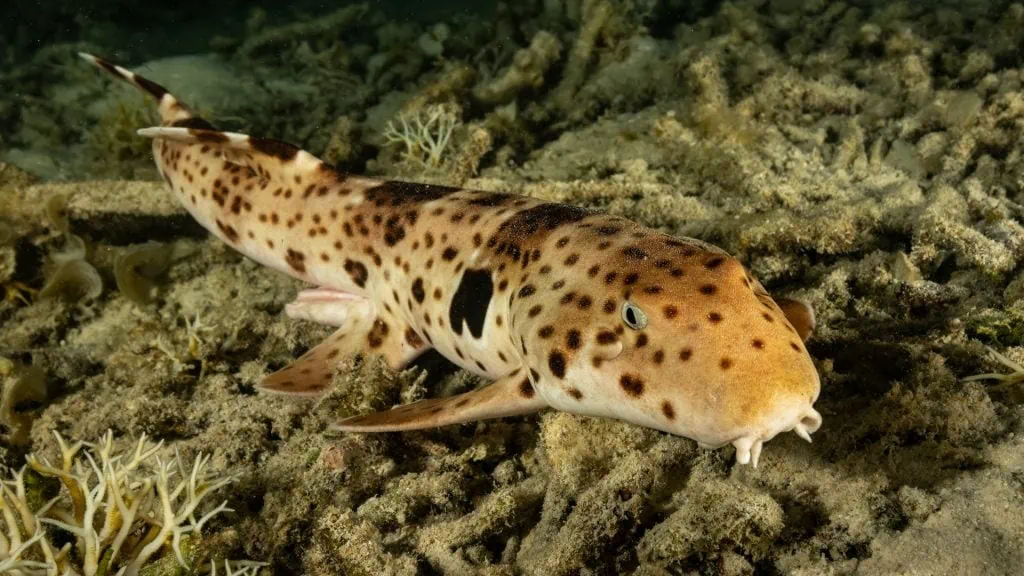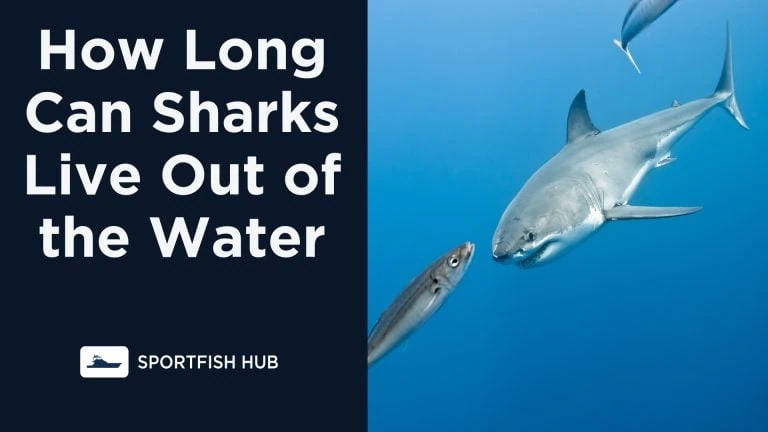Sharks are amazing ocean predators, but they need water to breathe and survive. Though some species can survive for a short time out of water, sharks ultimately rely on the ocean environment.
In this article, we’ll explore how long sharks can live out of water and what factors impact their survival.
How Long Can Sharks Live Out of Water?
The survival time of sharks out of water varies among species, but on average, most sharks can survive without water for about one to two hours. Some species, like the Epaulette Shark, can endure longer, up to 3 hours, due to their slower metabolic rate.
However, it’s important to note that even brief periods out of water can cause significant stress and potential harm to sharks.
The Epaulette Shark – An Air-Breathing Survivor

The epaulette shark is known to survive for 2 or more hours out of water by breathing air. This resilient shark lives in shallow tidal pools and has adapted to periodically be stranded out of water when the tide goes out.
Some key facts about the epaulette shark:
- Found in coral reefs off Australia and New Guinea
- Can survive over 2 hours out of water by breathing air
- Has adaptations like spiracles behind the eyes to breathe air
- Can restrict blood flow to limit oxygen use when out of water
- Will become inactive to conserve energy when stranded
- Able to tolerate significant changes in temperature, salinity, and oxygen levels
The epaulette shark’s incredible air-breathing adaptations allow it to survive in its dynamic intertidal habitat. Even so, it ultimately does need to return to the water to thrive long-term.
Factors Influencing Sharks’ Survival Out of Water
Several factors can influence how long a shark can live out of water:
- Species: Some species are more resilient than others. For instance, the dogfish shark has a slower metabolic rate, allowing it to survive longer out of water.
- Temperature: Cooler temperatures can slow down a shark’s metabolic rate, potentially extending its survival time.
- Stress Level: High-stress levels can accelerate a shark’s metabolism, reducing its survival time out of water.
Conclusion
While sharks are resilient creatures, they are not designed to live outside of water. The time they can spend out of water is limited and can cause significant stress and potential harm. As responsible inhabitants of this planet, it’s our duty to respect and protect these fascinating creatures.
Remember, the next time you come across a beached shark or one caught in a fishing net, every second counts. Reach out to local wildlife authorities who can provide immediate assistance.












